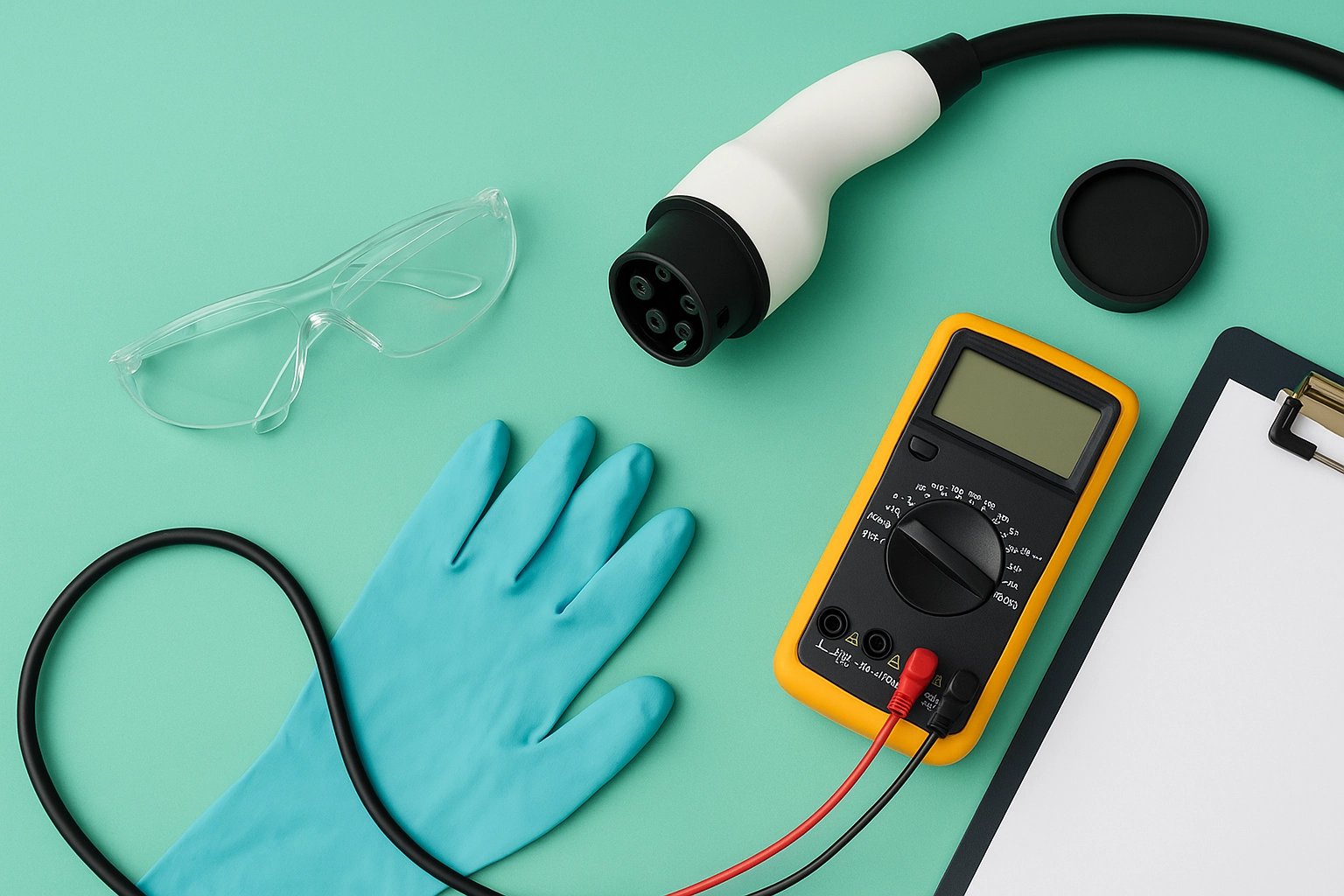IEC 63110 1 Protocol Communication for Charging Infrastructure Test
The IEC (International Electrotechnical Commission) 63110-1 standard establishes the communication protocol between electric vehicle (EV) chargers and connected devices. This protocol is crucial as it ensures seamless, secure, and reliable interaction necessary for the charging process of EVs. The protocol facilitates data exchange such as status information, authentication, and billing details.
Given the rapid growth in EV adoption, ensuring that charging infrastructure adheres to this standard becomes paramount. Compliance with IEC 63110-1 is not only a regulatory requirement but also enhances user experience by improving security, interoperability, and reliability of the charging stations. This protocol supports various communication modes, including direct connection between the charging unit and connected devices.
The protocol also defines the message structure for interaction, which includes commands sent from the EV to the charger, responses received back, and any additional data that might be exchanged during the process. The standard aims to minimize errors in communication and ensure robust performance across different types of chargers and vehicles.
Our testing service focuses on verifying compliance with this protocol through rigorous evaluation processes. We employ state-of-the-art equipment tailored specifically for these tests, ensuring accurate results that meet international standards. Our experts are well-versed in the nuances of IEC 63110-1 and can provide comprehensive insights into how your charging infrastructure stacks up against industry benchmarks.
In summary, adhering to IEC 63110-1 is essential for any organization involved in EV charging solutions. It guarantees interoperability among different manufacturers' products, enhances security measures, and provides a foundation for reliable service delivery. By partnering with us for this crucial test, you ensure that your charging infrastructure not only meets but exceeds global expectations.
Why It Matters
The importance of IEC 63110-1 cannot be overstated in today's fast-evolving automotive landscape. As more countries implement policies promoting renewable energy and sustainable mobility, the need for reliable and standardized EV charging infrastructure increases exponentially.
Compliance with this protocol ensures that all components—be they vehicles or chargers—are capable of communicating effectively without interoperability issues. This standard helps prevent compatibility problems between different systems, which could otherwise hinder widespread adoption of electric vehicles.
Moreover, security is a key aspect addressed by IEC 63110-1; it specifies mechanisms for securing data transmissions during the charging process. By ensuring that only authorized parties can access sensitive information like billing details or vehicle identification numbers, this protocol enhances overall safety and privacy concerns.
Reliability plays another critical role in maintaining customer satisfaction levels high while promoting public trust towards electric vehicles as a viable transportation option. Regular testing ensures continuous performance under various operating conditions, thereby fostering confidence among consumers who rely heavily upon these services."
Scope and Methodology
| Equipment Name | Description |
|---|---|
| Cable Tester | Used for verifying the integrity of cables used in charging stations. |
| Charging Station Emulator | A tool designed to simulate real-world scenarios during testing. |
We conduct our tests using advanced facilities equipped with state-of-the-art instruments capable of simulating various conditions that the charging infrastructure may encounter in actual use. Our approach involves replicating typical operational environments where potential issues could arise, thereby providing accurate assessments.
| Step | Description |
|---|---|
| 1. Initialize Communication | The test begins by establishing a connection between the charging unit and connected device. |
| 2. Send Commands | Various commands are sent to check response times, error handling capabilities, etc. |
| 3. Analyze Responses | The responses received from the charging unit are analyzed for accuracy and consistency. |
Benefits
Compliance with IEC 63110-1 brings numerous advantages to organizations operating in the EV charging sector. Primarily, it enhances reliability and reduces downtime by ensuring that all parts of the system work seamlessly together.
Security features embedded within this protocol protect against unauthorized access attempts, adding another layer of protection for sensitive data exchanged during transactions. This aspect is particularly important given increased concerns about privacy in digital environments.
Interoperability among different brands and models of charging stations contributes to broader market penetration by making it easier for users to locate compatible facilities wherever they go. This fosters greater acceptance and usage rates, ultimately driving sales growth within the industry.





